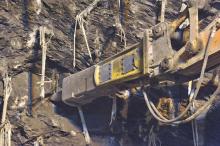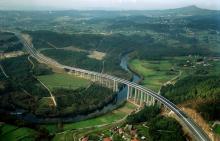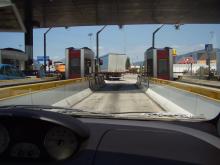Tolling has been widely promoted as the answer to future road needs by many economists. The fundamental principle of a toll road is comparatively easy to understand: a driver wants to get from here to there and pays a small sum for the privilege. Drivers generally prefer to access roads without having to pay but the sums involved in toll roads tend to be comparatively low. For all but the most parsimonious, parting with a few coins to use a stretch of highway in good order is comparatively painless, made ev

Tolling has been widely promoted as the answer to future road needs by many economists. The fundamental principle of a toll road is comparatively easy to understand: a driver wants to get from here to there and pays a small sum for the privilege.
Drivers generally prefer to access roads without having to pay but the sums involved in toll roads tend to be comparatively low. For all but the most parsimonious, parting with a few coins to use a stretch of highway in good order is comparatively painless, made even easier when up-to-date payment systems are used.
But toll roads are not always such a perfect solution to road transport needs. Firstly, the roads are not always in such prime condition as should be expected when a driver pays for use.
The famous4908 Pennsylvania Turnpike in the US for instance has been criticised both for its surface quality and safety features for example.
Secondly, toll roads are not much use if the local roads they connect to are inadequate to cope with traffic volumes and underfunded to such a degree that basic maintenance has been ignored.
However the tolling sector faces a far greater and more fundamental issue. The projects have to be economically viable in the first place. Ensuring that a tolled highway will work economically is not as straightforward as it may seem, which is something that a number of investors and large corporations have learned to their cost. Land expropriation processes can be long and torturous in some countries, with unexpected costs and challenges along the way. Geological and topographical challenges can present a long list of possible technical factors and result in major cost issues that were utterly unforeseen when a route was initially proposed.
Construction costs often escalate for many reasons, too many indeed to list here.
Financing can also be a difficult area, with interest rate spikes or additional taxation being amongst the factors that can impact on profits.
But sometimes the problems are more fundamental. Concession packages have to be realistic from the outset and traffic predictions play a key role. Get those traffic predictions wrong and a concession can be in trouble from very early on. Various highway projects have hit financial troubles in Latin American countries with growing economies including Brazil and Mexico. Meanwhile investments made in 10 highway projects in Spain have been threatened by bankruptcy. A combination of high land costs and lower than expected traffic volumes has hit the concessions hard, with four highways already having filed for administration.
Spain’s optimistic growth predictions of a few years ago have turned into an economic black hole. Meanwhile in Greece the economic problems afflicting the country are even worse, with a damaging knock-on effect for its tolled roads. Many users of Greece’s excellent new tolled highways have been simply refusing to pay, with disastrous results for the concession holders.
Sometimes highway operators can be realistic from the outset. In Indonesia, one toll road operator has been asking itself whether to go ahead with a flyover project. The construction cost predictions are high and to make the project viable, user charges will have to be higher than comparable rates for other routes in the country, begging the question as to whether drivers would be prepared to pay or prefer using existing congested routes.
Drivers generally prefer to access roads without having to pay but the sums involved in toll roads tend to be comparatively low. For all but the most parsimonious, parting with a few coins to use a stretch of highway in good order is comparatively painless, made even easier when up-to-date payment systems are used.
But toll roads are not always such a perfect solution to road transport needs. Firstly, the roads are not always in such prime condition as should be expected when a driver pays for use.
The famous
Secondly, toll roads are not much use if the local roads they connect to are inadequate to cope with traffic volumes and underfunded to such a degree that basic maintenance has been ignored.
However the tolling sector faces a far greater and more fundamental issue. The projects have to be economically viable in the first place. Ensuring that a tolled highway will work economically is not as straightforward as it may seem, which is something that a number of investors and large corporations have learned to their cost. Land expropriation processes can be long and torturous in some countries, with unexpected costs and challenges along the way. Geological and topographical challenges can present a long list of possible technical factors and result in major cost issues that were utterly unforeseen when a route was initially proposed.
Construction costs often escalate for many reasons, too many indeed to list here.
Financing can also be a difficult area, with interest rate spikes or additional taxation being amongst the factors that can impact on profits.
But sometimes the problems are more fundamental. Concession packages have to be realistic from the outset and traffic predictions play a key role. Get those traffic predictions wrong and a concession can be in trouble from very early on. Various highway projects have hit financial troubles in Latin American countries with growing economies including Brazil and Mexico. Meanwhile investments made in 10 highway projects in Spain have been threatened by bankruptcy. A combination of high land costs and lower than expected traffic volumes has hit the concessions hard, with four highways already having filed for administration.
Spain’s optimistic growth predictions of a few years ago have turned into an economic black hole. Meanwhile in Greece the economic problems afflicting the country are even worse, with a damaging knock-on effect for its tolled roads. Many users of Greece’s excellent new tolled highways have been simply refusing to pay, with disastrous results for the concession holders.
Sometimes highway operators can be realistic from the outset. In Indonesia, one toll road operator has been asking itself whether to go ahead with a flyover project. The construction cost predictions are high and to make the project viable, user charges will have to be higher than comparable rates for other routes in the country, begging the question as to whether drivers would be prepared to pay or prefer using existing congested routes.








